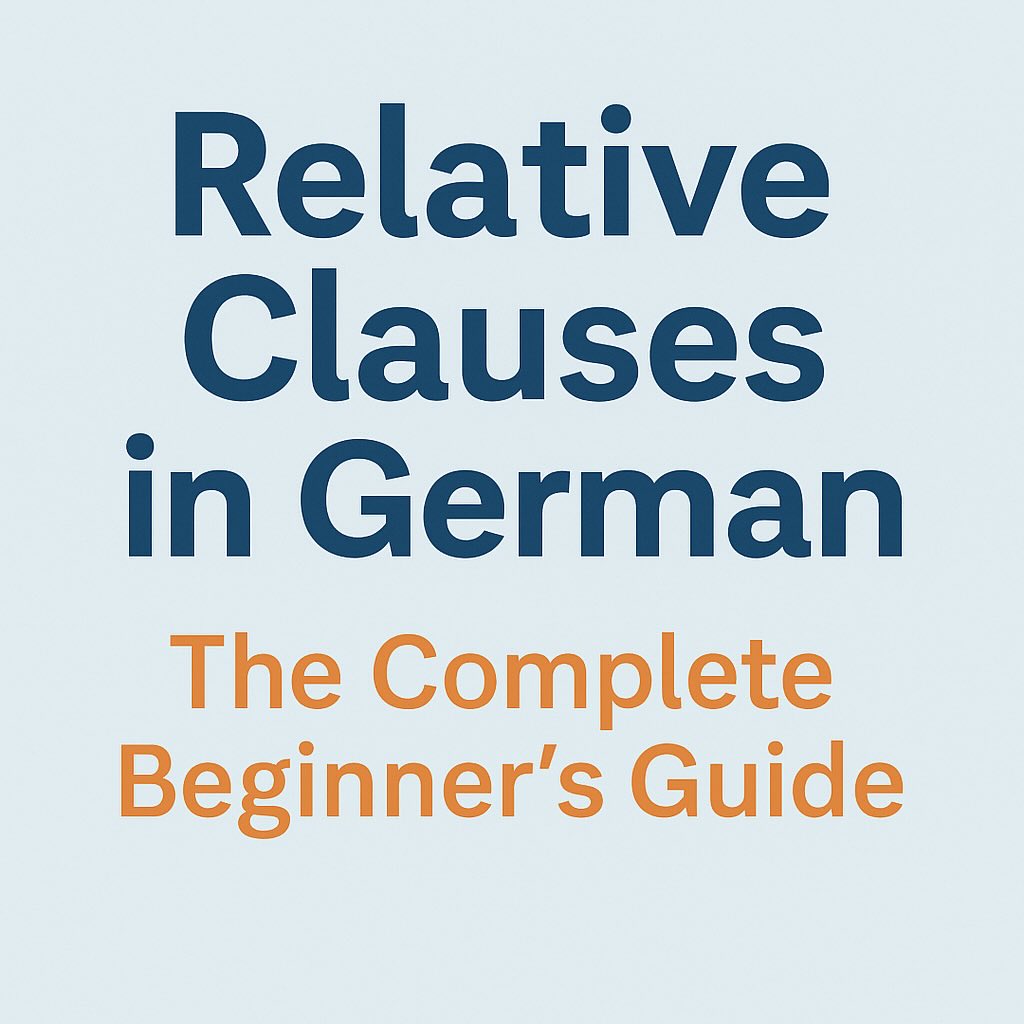🔗 选择语言
Learning German can feel tricky at first, especially when you meet relative clauses. But don’t worry — once you understand the basic rules, relative clauses become a simple and powerful tool to make your sentences richer.
What Is a Relative Clause?
A relative clause is a part of a sentence that gives extra information about a noun. In English, we use words like who, which, that.
👉 Example in English:
- The man who is standing there is my teacher.
In German, relative clauses work the same way — but they need relative pronouns that match gender, case, and number.
Relative Pronouns in German
Relative pronouns are almost the same as definite articles (der, die, das), but they change depending on case.
Table of German Relative Pronouns
| Case | Masculine | Feminine | Neuter | Plural |
|---|---|---|---|---|
| Nominative | der | die | das | die |
| Accusative | den | die | das | die |
| Dative | dem | der | dem | denen |
| Genitive | dessen | deren | dessen | deren |
(Alt text: German relative pronouns table showing forms for nominative, accusative, dative, genitive in all genders and plural)
Word Order in Relative Clauses
The most important rule: the verb goes to the end of the relative clause.
👉 Example:
- Das ist der Mann, der in Berlin wohnt.
(That is the man who lives in Berlin.) - Ich kenne die Frau, die Deutsch unterrichtet.
(I know the woman who teaches German.)
3–4 Common Examples
- Das ist das Buch, das ich lese.
(This is the book that I am reading.) - Kennst du den Lehrer, der Spanisch spricht?
(Do you know the teacher who speaks Spanish?) - Die Kinder, die im Park spielen, sind meine Nachbarn.
(The children who are playing in the park are my neighbors.) - Ich habe einen Freund, dessen Auto sehr schnell ist.
(I have a friend whose car is very fast.)
Common Mistakes Beginners Make
- ❌ Putting the verb in the middle of the clause.
- ❌ Forgetting that gender and case change the pronoun.
- ❌ Using was 而不是 das for neutral nouns.
FAQ: German Relative Clauses
Q: Do all relative clauses use commas in German?
Yes — you must always put a comma before the relative clause.
Q: Can I use “welcher/welche/welches” instead of der/die/das?
Yes, but it sounds very formal and is rare in modern German.
Q: What is the difference between “das” as a relative pronoun and “das” as “that”?
Context shows the meaning. If there is a noun before it, it’s usually a relative pronoun.
Final Note
Relative clauses may look complex, but they follow clear patterns. With a bit of practice, you will use them naturally in conversations and writing.
👉 For a deeper exploration of real-life usage and how relative clauses connect to cultural thinking, see Tymur Levitin’s Author’s Column.

📚 Related Articles on German Grammar
👨🏫 作者: Tymur Levitin — founder, director, and senior teacher at Levitin Language School | Start Language School by Tymur Levitin.
View teacher’s profile →
🌍 Learn German with us:
German Language Learning Page →
© Tymur Levitin | Category: German Grammar for Beginners
























